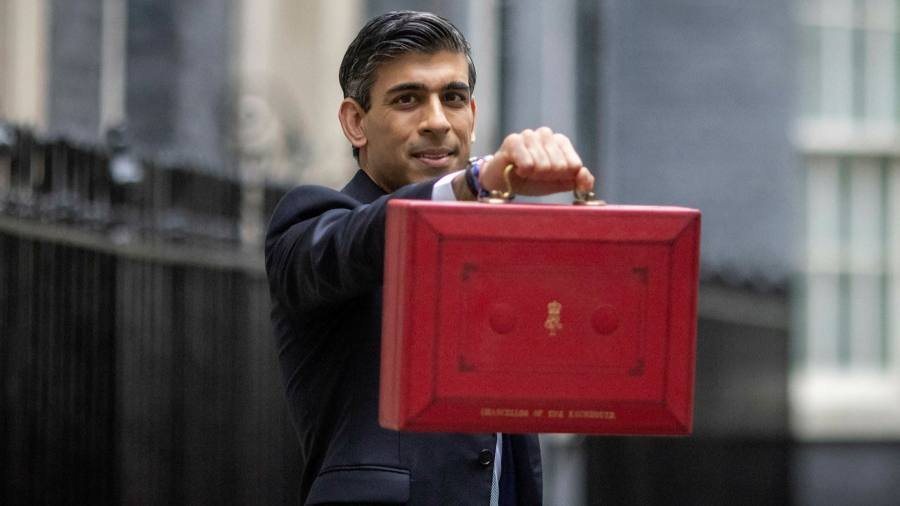The writer is a Conservative MP
Just when this country — emerging from the fog of the pandemic and facing a post-Brexit future — needs growth, it is being put at risk by a Treasury focused on tax rises at every turn.
As it stands, the British people, facing an imminent £600 uplift on their energy bills, are to be subjected to the pain of living under a tax burden that will be higher than at any point since the end of the second world war.
If the public is to be spared, Rishi Sunak’s Treasury must shelve its planned tax hikes and pivot to an aggressively pro-growth agenda now.
Unfortunately, we have witnessed nothing to suggest we can expect such an approach from this chancellor. Not only is Sunak content to raise taxes on the individual via a national insurance rise — theoretically to fund the NHS — he is also enthusiastically hiking corporation tax.
This seems to arise from a lack of understanding over the impact on individual families of a cost-of-living crisis growing more severe by the day. April is looming, when tax hikes will take effect and the energy price cap is to be reviewed and raised.
The government is happily chopping up “red meat” policies for its backbenchers. But we need the sort of “red meat” that matters — efforts to ease the cost-of-living crisis and keep money in the pockets of hard-working people.
The Treasury will claim these hikes are necessary to stabilise the public finances, but they will do the opposite. Increasing taxes on incomes will only deter wage and jobs growth, and hurt demand.
The government expects £12bn from the health and social care levy announced last September — a wholly unrealistic estimate. I would be surprised to see half that amount raised. But the levy will stoke the cost-of-living crisis and move the Conservative party even further away from our hard-won reputation as the party of low tax and fiscal responsibility. We should cancel the NI increase straight away.
Furthermore, the corporation tax uplift will drive inward investment into the arms of our competitors. It too must be cancelled. To take advantage of the opportunities available to us, we need an economic strategy fit for a post-Covid, post-Brexit Britain. It starts with scrapping these damaging tax rises.
The Treasury is so focused on trying to balance the books that it cannot see the blindingly obvious — that the pandemic is a once-in-a-century event and the cost must be treated accordingly. The country should be treating Covid debt like a war bond, stretched over a period of 50 years or more. Every month of delay makes this more expensive.
As for levelling up, there seems to be a belief that we have to balance cash outlay, so every penny spent on infrastructure has to be funded from current taxation. There is no logic in setting regional policy squarely against the tax reduction imperative. Both are part of an agenda for growth.
Her Majesty’s Treasury is seen as the Rolls-Royce of departments; the most important cog in the government machine, well oiled and delivering maximum efficiency. But I know from my time as chair of the public accounts committee that this is not always true. A decade ago, George Osborne, then chancellor, delivered his “omnishambles” Budget, which was almost universally derided, forcing Osborne into U-turn after U-turn as his caravan tax hike was shunted off the road and the pasty tax went cold.
The chancellor, rightly, had to carry the can. But his department developed, tested and costed these policies. Ten years on, can this department, facilitator of the ERM fiasco, source of apocalyptic and false warnings about the cost of Brexit, be trusted with rebuilding an economy crippled by the pandemic?
Time is running out to ditch these tax hikes, ease the cost-of-living burden and right the ship. If we don’t, the country will be facing a real crisis: and this time, one of our own making.

